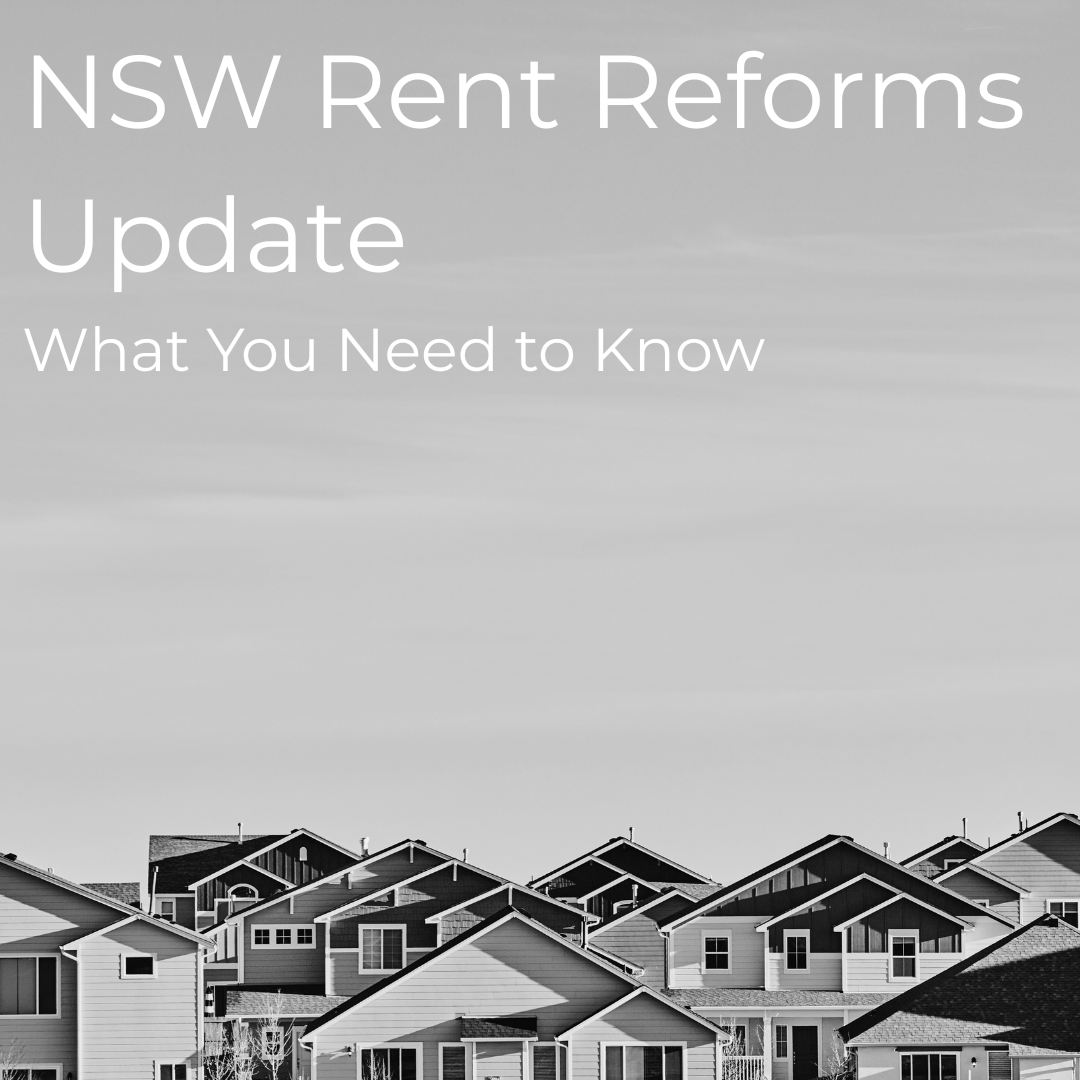New Rental Laws
Upcoming Changes to NSW Rental Laws – Effective 19 May 2025
Significant reforms to the Residential Tenancies Act will take effect on 19 May 2025, aiming to enhance stability and fairness for renters while providing clarity for landlords. Key changes include:
-
End of 'No Grounds' Evictions: Landlords must now provide a valid reason, supported by evidence, when terminating a lease. Acceptable reasons include property sale, significant renovations, or the landlord or a family member moving in.
-
Rent Increase Cap: Rent can only be increased once every 12 months, applicable to all rental agreements.
-
Extended Notice Periods: Notice periods for ending leases are increasing. For fixed-term leases longer than six months, landlords must provide at least 90 days' notice.
-
Pet-Friendly Provisions: Landlords must respond to pet requests within 21 days. If no response is given, the request is automatically approved. Once approved, the pet can remain for its lifetime, even if ownership of the property changes. NSW Government
-
Fee-Free Rent Payments: Landlords are required to offer tenants at least one fee-free method of rent payment, such as bank transfer or Centrepay. NSW Government
-
Ban on Background Check Fees: Tenants cannot be charged for background checks or lease preparation fees.
How These Changes Affect Property Owners
The new rental reforms introduce several important shifts for landlords in NSW. With the end of ‘no grounds’ terminations, owners will need to provide valid reasons for ending a tenancy, such as selling the property, undertaking major renovations, or moving in themselves. Rent increases will now be limited to once every 12 months, and stricter notice periods apply when ending leases. Owners will also need to respond to pet requests within 21 days or risk automatic approval, and must offer at least one fee-free payment method for rent. While these changes aim to provide greater stability for tenants, they also place more responsibility on landlords to comply with the updated legal framework and ensure proper documentation for tenancy decisions.
For more detailed information and resources, you can visit the REINSW's dedicated page on the rental reforms: REINSW Rental Reforms

